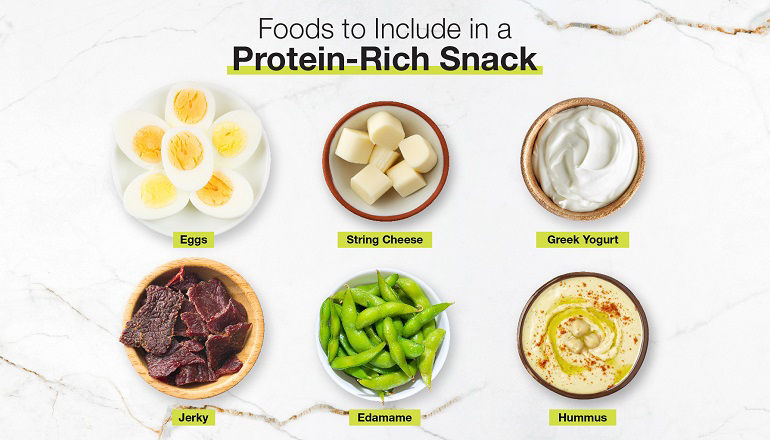
Daily Nutrition & Health
Support Beyond Medication in the New Normal
Herbalife 31 July 2023
The pandemic has brought a significant change to the patient-doctor relationship. As a doctor, treating your patient holistically has become the need of the hour. It is important to stay connected with your patients and take care of their mental and physical well-being.
We have often heard of the adage, “A good physician treats the disease, a great physician treats the patient who has the disease.” The relationship that patients have with their doctor involves a great amount of trust and vulnerability; and like any relationship, this too deepens with time.
According to the American National Institute of Health, trust, knowledge, regard, and loyalty are the four elements that form the doctor-patient relationship, and the nature of this relationship has an impact on patient outcomes too. The quality of care, knowledge and time a physician invests in the patient is an important aspect, but what really drives the trust meter up is a personal connection with the patient.
The pandemic has changed the world around us. The lives and functions of doctors and physicians have been impacted the most. We are also entering the phase of AI and telemedicine that is enabling better access to consultations for patients who cannot travel in current situations. Conversational artificial intelligence (AI) for instance, is changing the way mental health care is delivered. The current conditions require a new approach by the doctors. According to a survey conducted by Herbalife in Asia Pacific, it was revealed that the number one reason healthcare practitioners (HCPs) are unable to have an expansive consultation about general health and nutrition with their subjects is the lack of time. Yet, sufficient time for coaching and counsel is required to achieve success beyond prescriptions. It often relates back to providing support to a patient’s well-being through counsel on diet, health and nutrition, exercise and lifestyle. One of the key insights derived from this study was that consumers (74%) in Asia Pacific were looking to HCPs as the most credible source of nutritional advice.
Physicians do have a new and more significant role to play in the new normal. As a continuum of trust and credibility, healthcare providers are often playing the role of the healer archetypes, wearing the hat of health coaches. HCPs acting as a counsel, must adopt the “whole person” approach, where patients are treated holistically – catering to their physical, mental and social needs. Attempting to better understand not only the patient’s sickness, but also their social, cultural and economic profiles, and above all, their expectations can help doctors in this new role.
Nutrition Counsel
Balanced and right nutrition is one of the key areas where healthcare practitioners can support their patients. The global rise of diet-related non-communicable diseases and the double burden of obesity and malnutrition means that it is more important than ever that all HCPs are able to provide at least basic evidence-based nutrition advice. The survey conducted by Herbalife in Asia Pacific, witnessed participation from HCPs and consumers alike. It was aimed at understanding the level of health and nutrition knowledge among these respondents.
The outcomes of the survey indicated that 7 out of 10 consumers considered it extremely important to have accurate nutritional information and social media was the most frequently used channel in their search for answers. However, there is a cacophony of voices and opinions being peddled as nutrition facts and scientific findings, and consumers often encounter facts that are contradictory in nature. The situation is exacerbated when there are unqualified individuals masquerading as experts.
How to tread this change?
To know that your healthcare provider is there to support you in your journey, beyond prescriptions itself, creates a feeling of community and belonging for patients. Here are a few steps that can be taken to include nutrition advice in actual practice:
Start talking about Nutrition:
- Your patients may not know that you are available for giving nutrition advice. So, speak about food nutrition facts in general when engaging with patients and encourage them to ask questions
- Have nutritional information available at your clinic and on your website. Provide links to evidence-based sites for information.
Include a Nutrition Checklist:
- Create a checklist that can be a part of your consultation papers and can be filled up by the patient while they wait.
- Apps and online tools too can be used to capture the nutritional awareness and needs of the patients.
Create a Community:
- Communities are a great way to stay connected with like-minded people and those who share a passion or a common goal. Communities can be on the digital platform too like WhatsApp, Facebook and blogs. With social media being the most frequently used channel for consumers seeking nutrition information, HCPs can use this wisely to share more accurate sources of information.
In parallel, health care practitioners should also take time to focus on their own wellbeing. We need them to be fully charged in this new normal. As a healthcare provider, I want to encourage each practitioner to intentionally focus on nutrition and wellness for themselves. Ironically, the patient-provider relationship can be a source of energy when it becomes an enriching experience that is focused on connection and support. This level of support, beyond medication, may be a way forward that re-energizes the HCP and provides hope for the patient.
References
Herbalife Myth Survey with 5,500 consumers and 250 healthcare providers in Asia Pacific (2020)
This article was originally published in Physician's Weekly and Asian Hospital and Healthcare Management
Trending Articles






